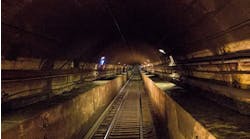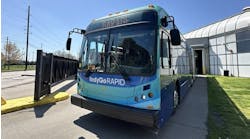ROME --
Commuters in Italy scrambled on Friday to find the few buses and subway trains running during a one-day general strike that also affected air and rail travel, banks, public offices and schools.
The nationwide strike was called by Italy's biggest labor confederation to push for more investment in job creation and for reform of a tax system that is widely seen as penalizing salaried workers.
The mass transit walkout was set to last for four hours at morning or evening rush hours.
Flight personnel were striking from 10 a.m. to 2 p.m. (0800-1200 GMT), and railway workers from 2 p.m. to 6 p.m. (1200-1600 GMT). Alitalia changed departure times to ensure intercontinental service and reduced domestic and European flights.
The strike also forced La Scala to cancel its scheduled performance of Giacomo Puccini's "Turandot," the opera house's website said.
Motorists on the main north-south highway whizzed through toll booths near Florence without paying. A sign said no toll was being collected because tollkeepers were also on strike. In Rome some taxi drivers idled their cabs even though they weren't part of the union.
Those headed to the post office faced the prospect of long lines, as the strike in that sector was set to last eight hours, or most of the scheduled opening hours. In one Rome major piazza, Largo Argentina, one bank was closed, while across the square another bank had one worker inside at the teller's window.
"I didn't adhere to the strike because I don't think it's useful," said Linda Potoschi, a 30-year-old bank worker. "And those who strike just lose money from their paycheck."
Leaders of the CGIL labor federation want the government to ease taxes on salaried workers in a country where the self-employed often evade taxes. Leaders of smaller labor confederations didn't join the strike call, which meant that some transportation workers did show up for work.
The government must "immediately enact tax reform," CGIL leader Susanna Camusso said in Naples, where the main strike rally of the day was held. "And tax revenues must be used to create jobs and growth."
Other rallies were held elsewhere in Italy, including the country's financial capital, Milan, where bus, subway and tram workers were set to stop work during the homebound commuter rush hours in the evening.
Premier Silvio Berlusconi has pledged over the years to create hundreds of thousands of jobs. The union leaders say the government has failed to improve the lives of the working class.
Despite its high public debt levels, Italy has avoided being sucked into the European debt crisis in good part because of a low level of private debt and relative good health of banks.
The strike call also involved CGIL workers at factories.
Copyright 2008 The Associated Press. All rights reserved. This material may not be published, broadcast, rewritten or redistributed.


